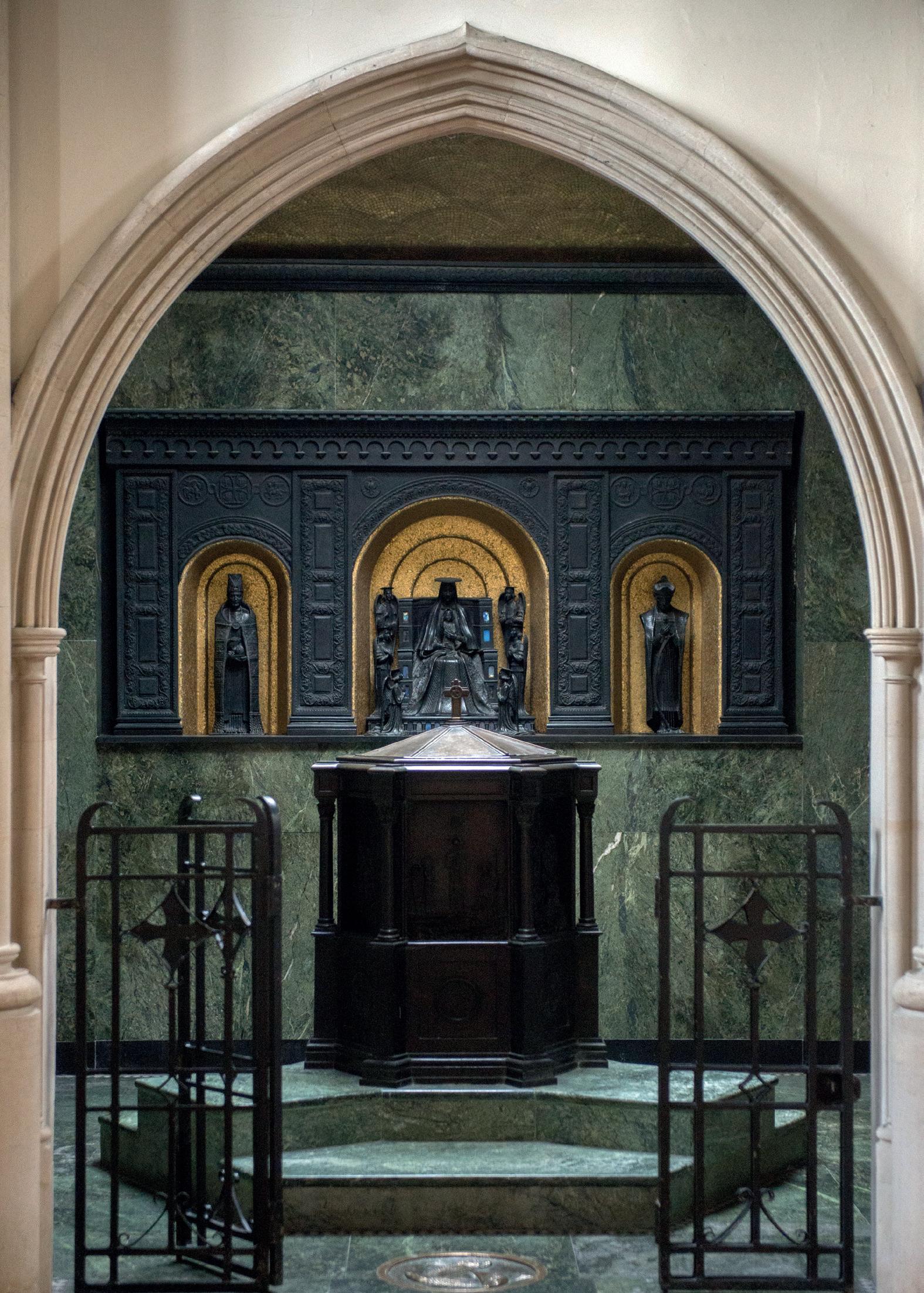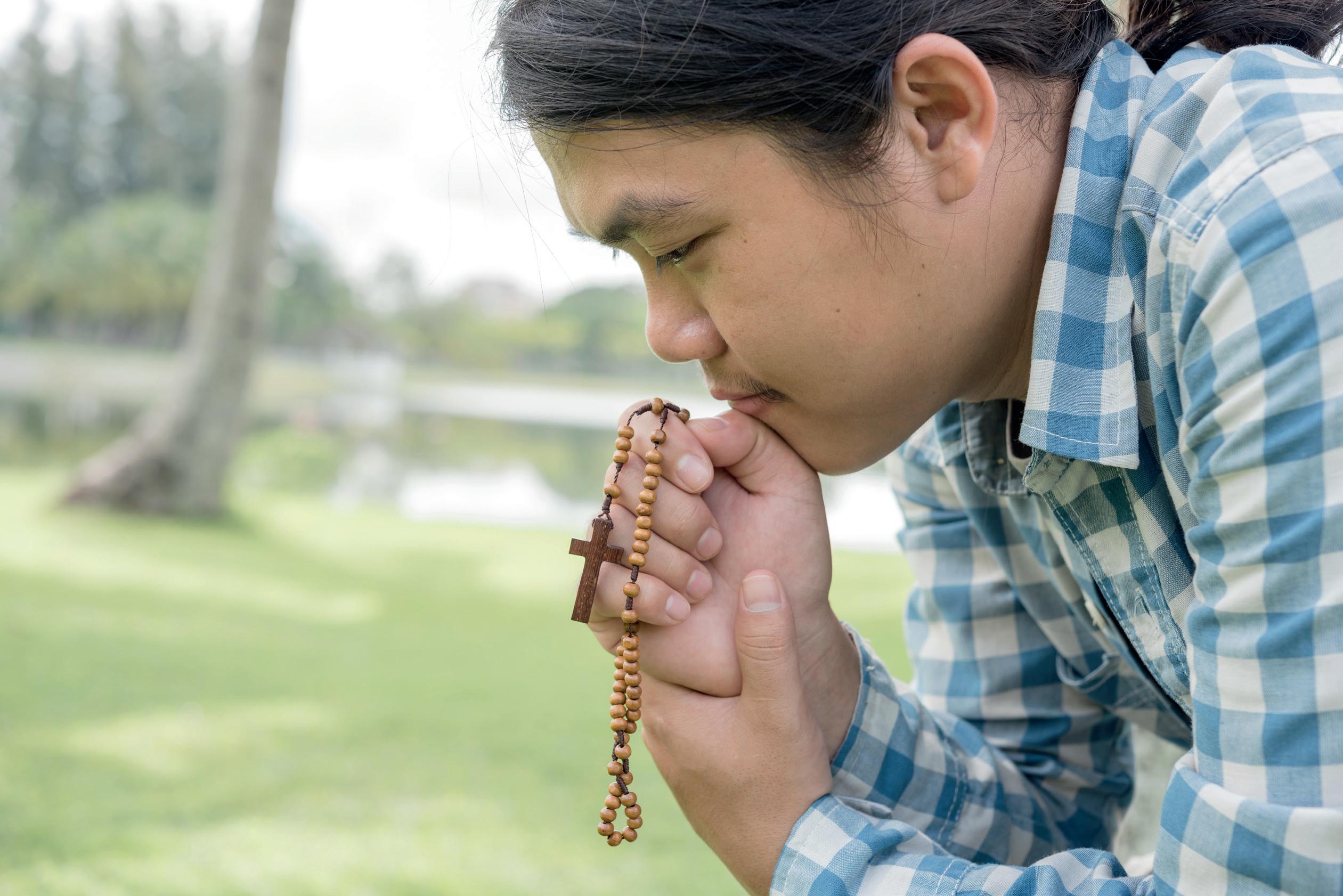
5 minute read
The Beginnings: Normal and Holy
CHAPTER ONE
The Beginnings: Normal and Holy
Advertisement
Carlo’s earthly journey began in London on 3rd May 1991. His partly English father, Andrea Acutis, and Italian mother, Antonia Salzana, had business ventures in London and lived at 4 Gledhow Gardens, SW5. The Acutis family were, and still are, owners of a large insurance company, Vittoria Assicurazioni S.p.A. On 18th May, 1991, Carlo began his life as a child of God through the sacrament of Baptism at the Church of Our Lady of Dolours on Fulham Road in the Borough of Kensington and Chelsea in London, a parish run by the Servite Order (the Servants of Mary) and dedicated to Our Lady of Fatima. He was given the name Carlo Maria Antonio. “Carlo” because that was his grandfather’s name. Yet, from that moment, St Charles Borromeo, the holy Archbishop of Milan, became his protector and patron. As he grew up, Carlo developed a special love for the Virgin Mary and St Anthony of Padua. Both sets of grandparents came for the Baptism of the first-born child, as did Carlo’s great grandmother, Adriana. His godparents were his grandfather, Carlo Acutis, and his maternal grandmother, Luana.
15
God has written for each one of us a unique and unrepeatable story, but he has left us the freedom to write the conclusion.
The importance of this moment and Carlo’s parents bringing their child to Baptism cannot be overemphasised, especially in light of what was to unfold in this boy’s short life. The Catechism of the Catholic Church teaches that sanctifying grace, received in Baptism, “perfects the soul itself to enable it to live with God, to act by his love” (n.2000). Carlo’s parents were nominal Catholics, attending Mass rarely. His mother admits that, coming from a non-practising family, before Carlo she had been to Mass only for her First Communion, her Confirmation and her wedding. “I was not the ideal model of a Catholic mother,” she says. His father’s faith was lukewarm. When the two dated, neither went to Church. Carlo’s parents might well have chosen not to baptise their son or to leave the choice to him in his adult life. It would have meant to deprive God of his power to act through the sanctifying grace bestowed in Baptism. Years later, Carlo himself recognised the fundamental importance of the sacrament – the gateway to life in the Spirit – that he had received:
Baptism allows souls to be saved thanks to the readmission to Divine Life. People do not realise what an infinite gift it is, and, apart from thinking about giving sweets and the white garment, are not worried at all about understanding the meaning of this great gift that God gives to humanity.
17
Again, let us reflect on the possibility that Carlo, who died at the age of fifteen, might have not been baptised or might have been left the choice to decide later. The Acutis family returned home to Milan in September 1991. In most ways, Carlo was a perfectly normal child growing up. At the age of four, he began pre-school, which he enjoyed immensely, since he liked being with other children. His summers were spent with his maternal grandparents in Centola, a town in the southern region of Campania. Here, he immersed himself in the beauty of the sea and nature, forming new friendships with children of his own age. A significant moment came when he visited the Sanctuary of Our Lady of Pompeii at the age of five. His Polish babysitter, Beata, a faithful Catholic, who looked after Carlo for four years, recalls his devotion to the Blessed Mother and how he consecrated himself to Our Lady of the Rosary of Pompeii: “He made us take him there to do the special consecration … and afterwards, all of us together recited the Rosary before the miraculous image of the holy Virgin.” Back in Milan, at the age of seven, Carlo first attended a prestigious school, the Istituto San Carlo. He remained there just three months, before he was transferred to the Istituto Tommaseo, run by the Marcelline Sisters, because it was closer to the Acutis home. There Carlo was educated from January 1998 until September 2005. At the age of fourteen, Carlo moved to secondary school
18
The Rosary is the shortest ladder to heaven.

in the rigorous setting of the Jesuit-run Leo XIII Classical Lyceum in Milan. There are testimonies from his Jesuit teachers, staff and classmates of how Carlo thrived in this environment, showing himself to be a generous, affectionate and brilliant young man. Like any youth growing up, Carlo had his weaknesses and temptations. Not only did he come from a wealthy family, he was also good-looking. He was a natural joker, who enjoyed making his classmates and teachers laugh. His report cards record how he could be disruptive. He realised this and made an effort to change. His brilliance with the internet and computer technology, recognised even by experienced programmers, undoubtedly brought temptations, although no trace of immoral sites was found on his computer after his death. Steve Jobs, cofounder of Apple, was one of his heroes. Carlo often repeated his phrase: “Your time is limited, so don’t waste
19
it living someone else’s life … Being the richest man in the cemetery doesn’t interest me. Going to bed at night, saying we’ve done something wonderful, that’s what matters to me.” He would develop a passion for playing video games, Pokémon and PlayStation, but, with a discerning sense of the risks, he limited himself to doing so for one hour each week, as a penance and a spiritual discipline. Carlo was a lover of life: “From whatever point of view you look, life is always fantastic,” he would say. He played sports, loved animals (he had two cats, four dogs, and lots of goldfish!), played the saxophone and had a sweet tooth. Starting with small struggles, Carlo learned how to master the art of self-control and grow in the virtue of temperance. Putting on weight, for example, made him understand the need for self-control: “What does it matter if you can win a thousand battles, if you cannot defeat your own corrupt passions? The real battle is within ourselves.” Purity was important to him. “Each person reflects the light of God,” he would often say. So, even with his peers, he defended the Church’s teaching on the human body as a gift from God in areas such as sexuality and abortion. When the Acutis family began spending time in Assisi – where Carlo says that he felt “happiest of all” – he was a regular at the town’s swimming pool and enjoyed hikes through the Umbrian countryside with the family dogs. In most ways then, Carlo was a very normal boy, born in London, and brought up in Milan, Centola and Assisi.
20



